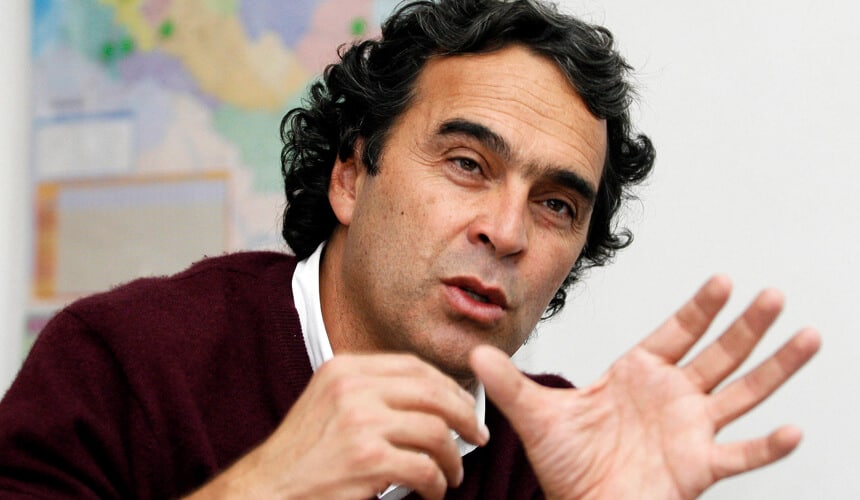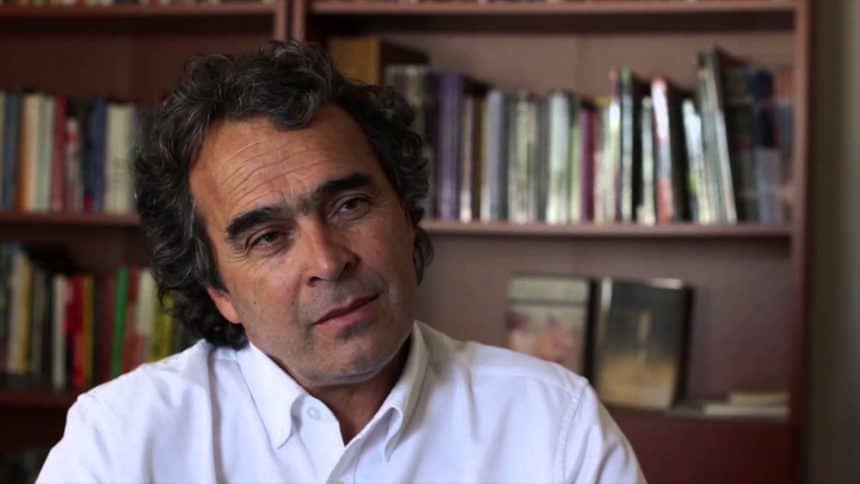Sergio Fajardo
A New Medellín
The city of used to be the scarred face that Colombia showed to the world. The streets of this cocaine capital were pockmarked by car bombs, bloodied by drug violence; its people ached with inequality, poverty and hopelessness.
But mathematician-turned-politician Sergio Fajardo MA1981, PhD1984 refused to accept Medellín’s despair. At the UW, he had studied probability theory, earning his graduate degrees in mathematics. He trained as a teacher and researcher, but he also learned about local and international issues. When he returned to Colombia, he began writing opinion articles and taking part in politics. Beginning with his election as mayor in 2003, he began to change the city’s face with architecture, renewal and education.
In Santo Domingo, one of the city’s roughest barrios, a cultural center rose from some of Medellín’s meanest streets. It included a library park with world-class architecture, reading rooms, Internet access, books, a gondola-style cable line, and sleek, urban courtyards. Other poor neighborhoods were similarly transformed.
“People laughed at us before; they don’t laugh at us now,” Fajardo said in 2014. “Nobody would ever dare to walk over there, but now it’s a beautiful place.”
His aspirational philosophy was simple: “To the poorest people, the most beautiful buildings.”
The city’s budget for education surged as Fajardo bumped it to 40 percent of Medellín’s public spending.
“You have to build on education in order to be able to walk through the doors of opportunities,” the former Colombian college professor and UW–Madison teaching assistant said.
The city’s homicide rates declined sharply and its image began to change. Far from providing a cure-all for the city’s entrenched problems, Fajardo helped Medellín turn an important corner.
“He is carrying out a redistribution of wealth without a discourse of rage,” political commentator Héctor Abad Faciolince told the New York Times. “If Medellín cannot take these risks, then what place can?”
After serving as mayor through 2007, Fajardo unsuccessfully ran for president of Colombia in 2008 and for vice president in 2010. A year later, he became governor of the state of Antioquia, where he masterminded several more educational parks and sports complexes and a new university.
“If you have people with a wall in front of them,” Fajardo said, “you need to help them build doors.”
 24° F
24° F
